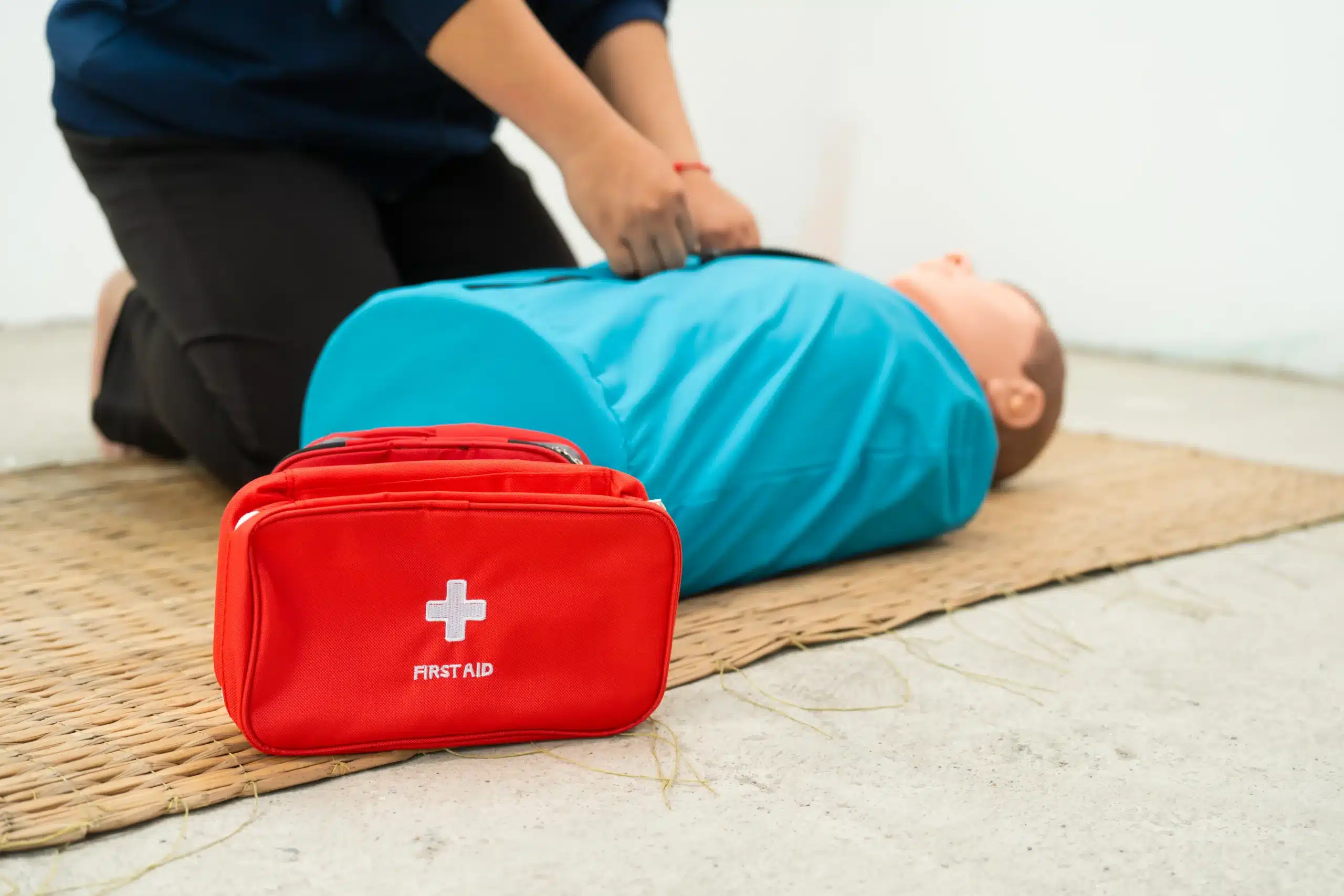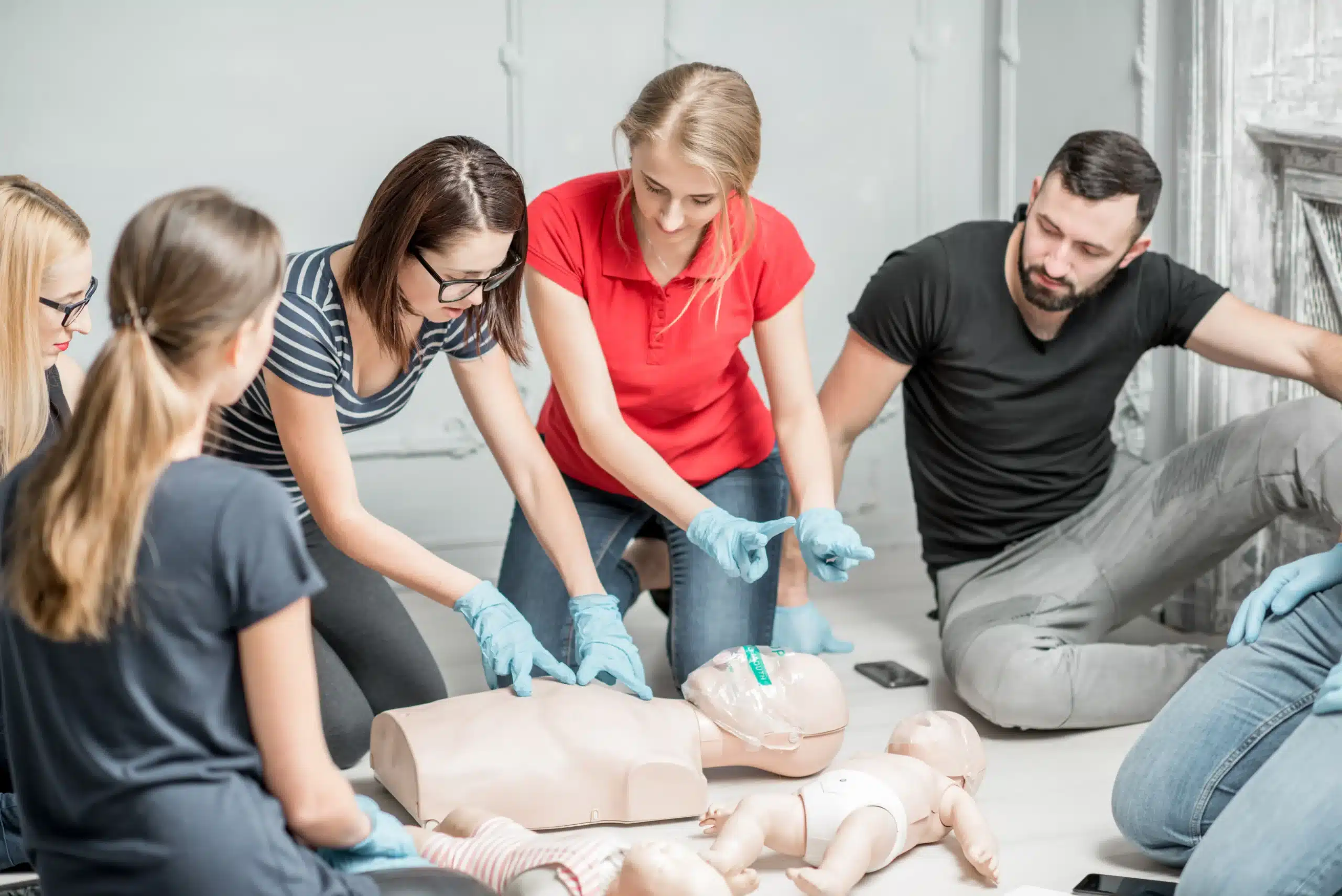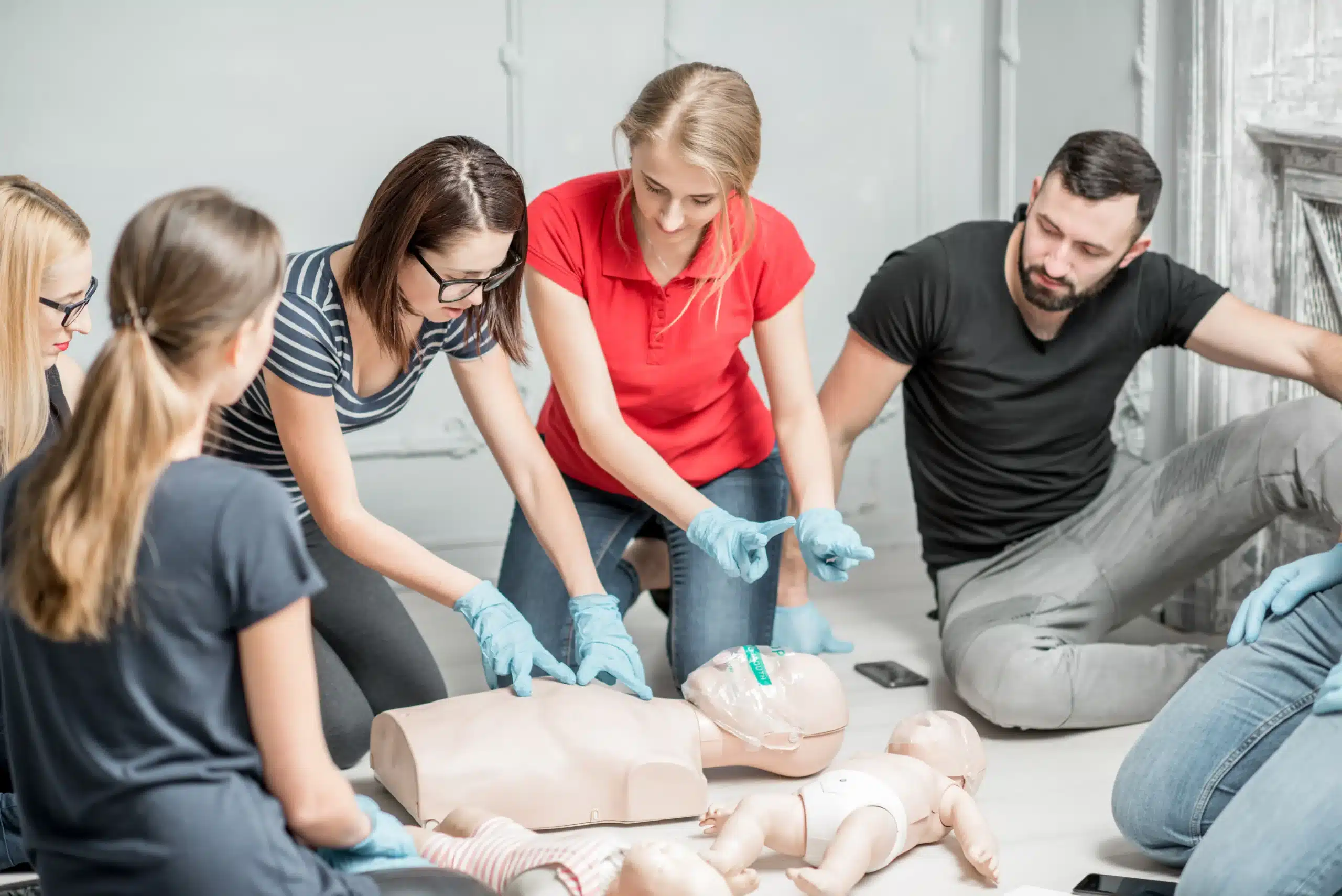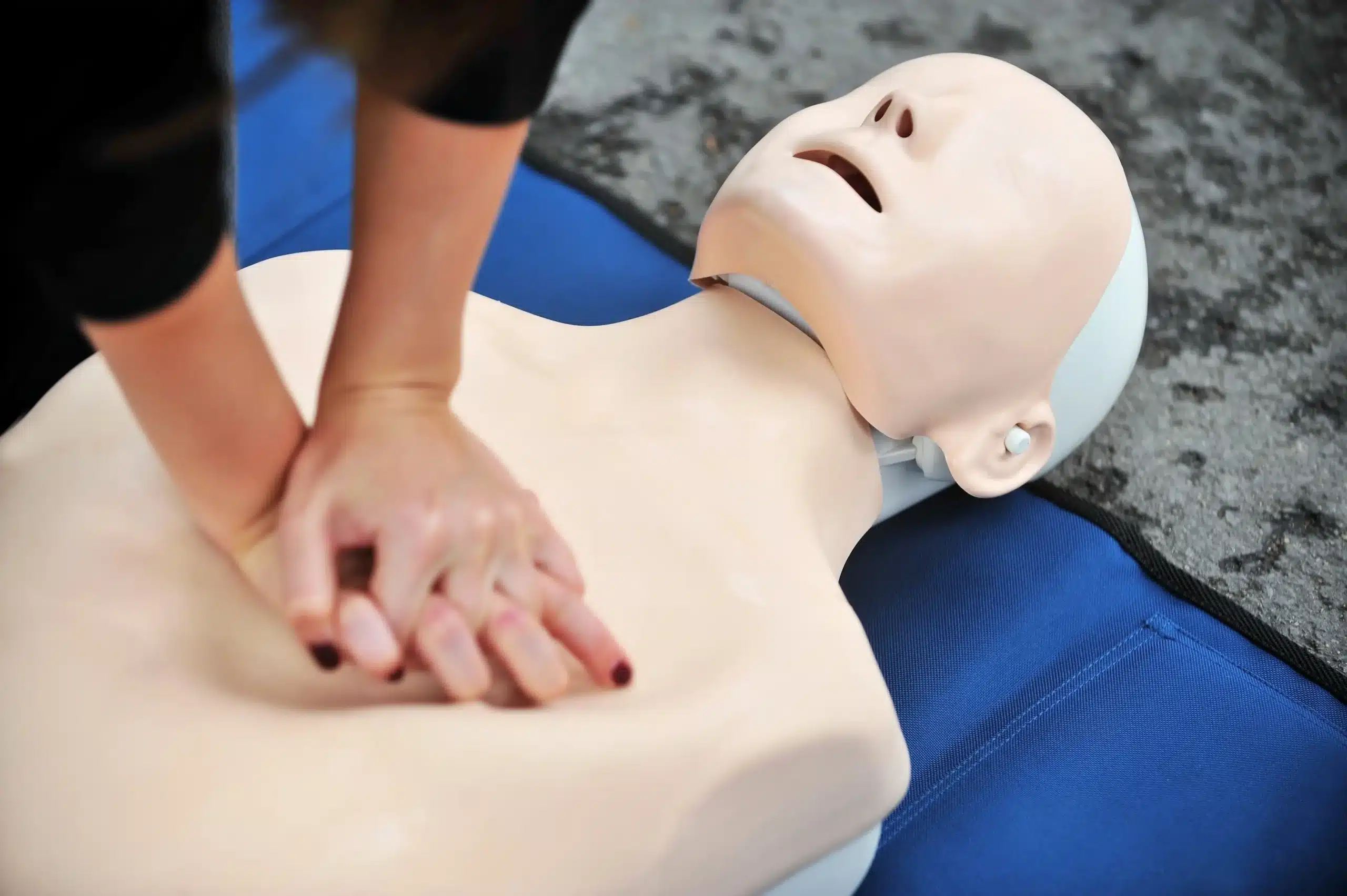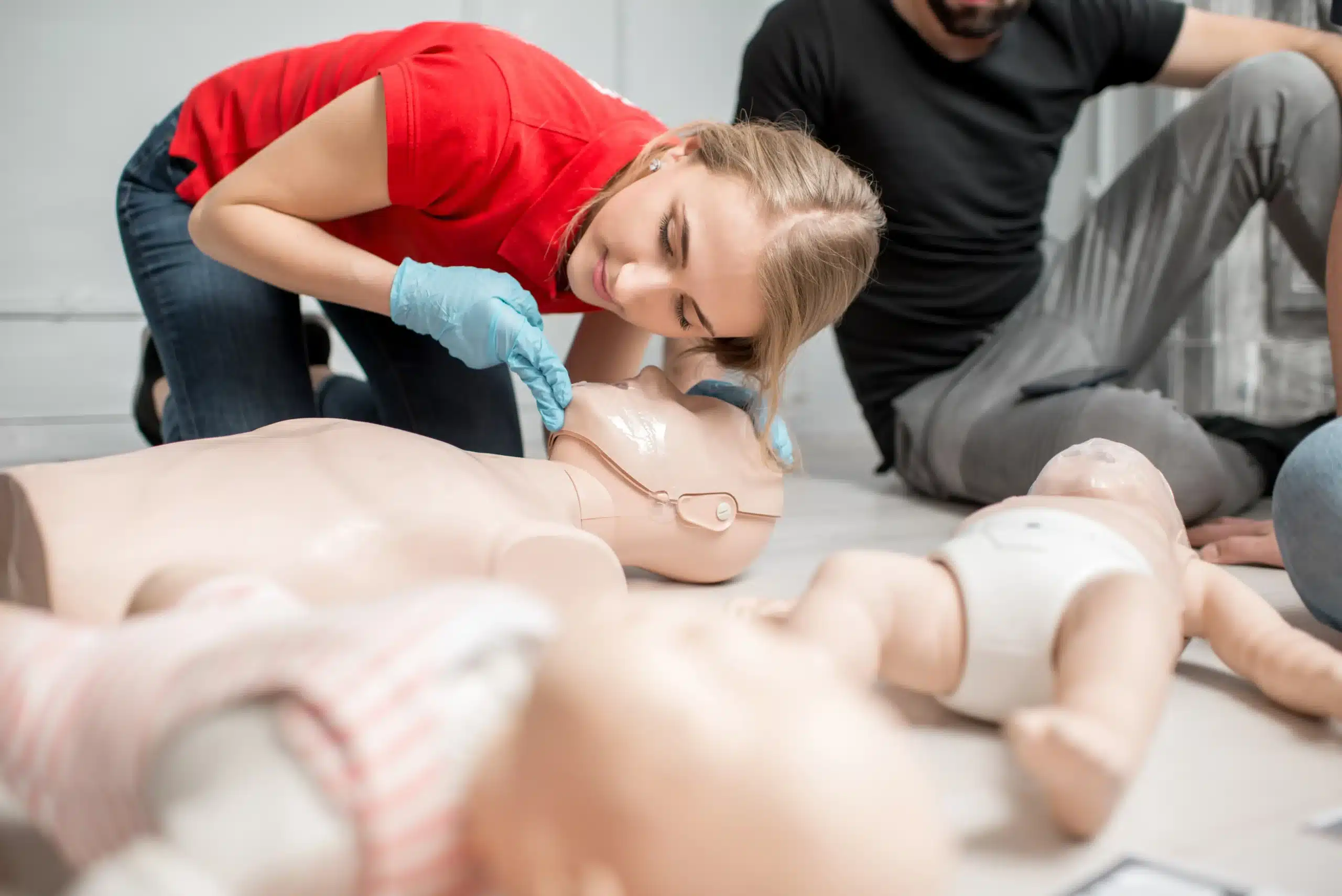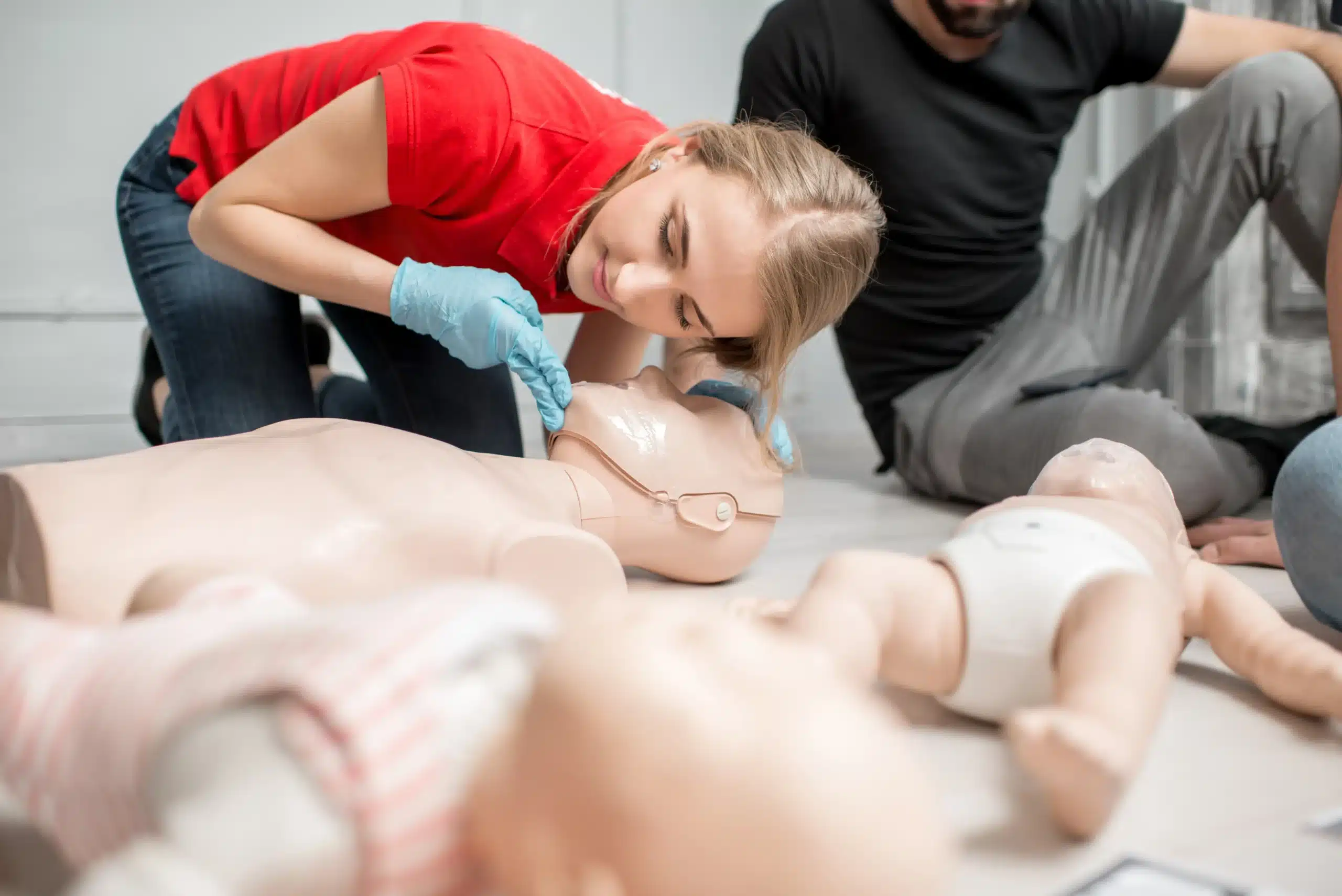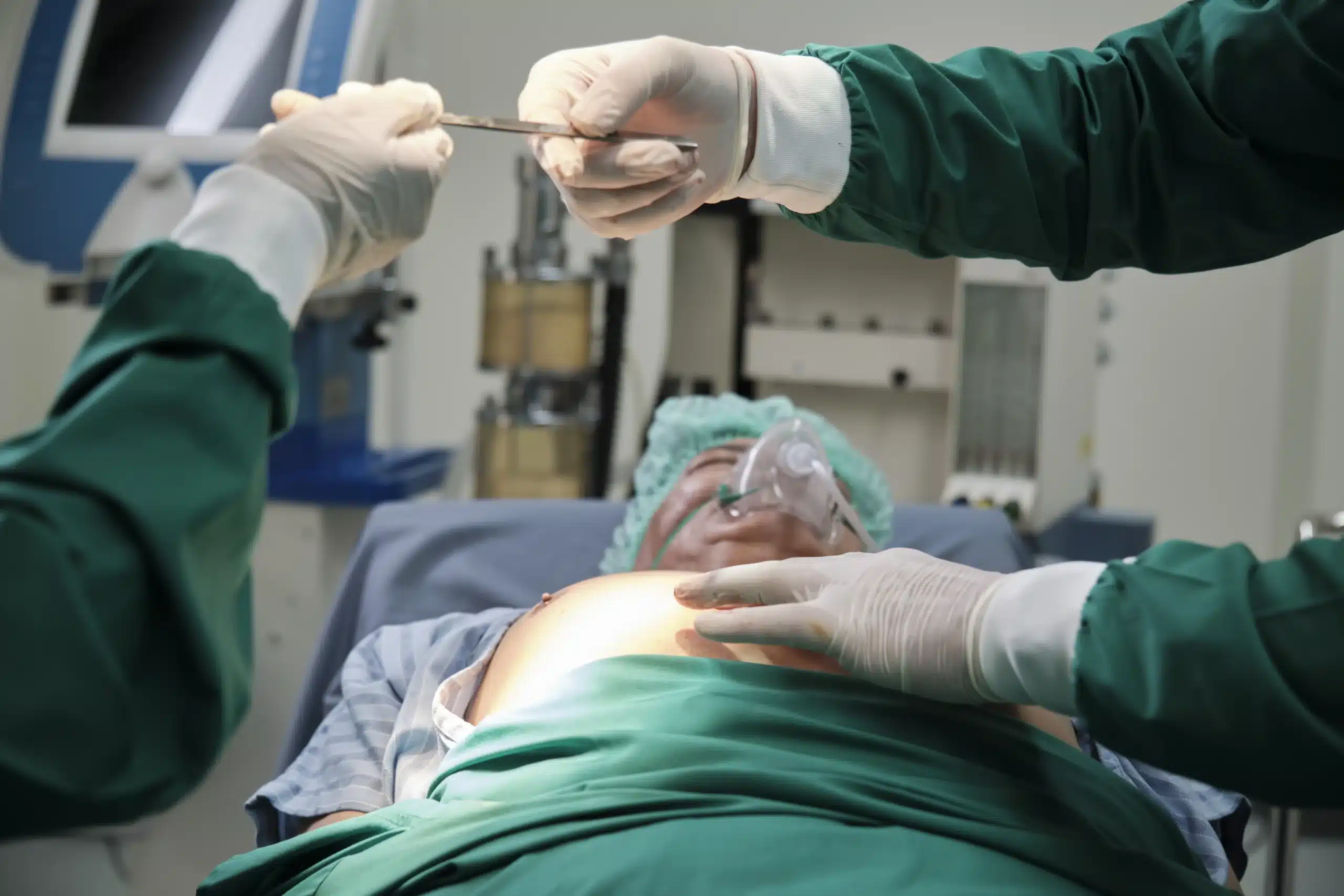Working in healthcare means being prepared for anything. When it comes to children, emergencies can be especially challenging. Pediatric Advanced Life Support (PALS) certification provides healthcare professionals with the specialized training to handle critical situations involving infants and children. This article explores the world of pediatric advanced life support in Santa Rosa, offering insights into the certification process, course content, and the benefits of becoming PALS certified. We’ll delve into the specific skills you’ll gain, the importance of a standardized approach, and how PALS training can enhance your career prospects. Whether you’re a nurse, doctor, or other healthcare provider, this guide will help you understand the value of PALS and how it can empower you to provide the best possible care for your young patients.
Key Takeaways
- PALS certification equips you with essential skills: It provides the training to confidently manage pediatric emergencies, improving patient outcomes and potentially opening doors to career advancement. Choose a program that fits your learning style and schedule.
- PALS courses offer a blended learning experience: This combines online learning with in-person skills practice, allowing flexibility and practical application. Remember to renew your certification every two years to maintain your skills and knowledge.
- Preparation is key for PALS course success: Familiarize yourself with core concepts and practice essential skills before your course. After earning your certification, stay updated on the latest guidelines and seek continuing education opportunities to enhance your expertise.
What is Pediatric Advanced Life Support (PALS)?
What is PALS?
Pediatric Advanced Life Support (PALS) is specialized training designed to equip healthcare providers with the skills to manage pediatric emergencies. The program focuses on a systematic approach to rapidly assess and address life-threatening situations in infants and children. The PALS Provider Course teaches high-performance teamwork and refines individual skills to improve outcomes for young patients. This includes recognizing and responding to respiratory emergencies, shock, and cardiopulmonary arrest. PALS covers a wide range of topics, from the basics of life support to advanced interventions, all tailored to the specific needs of children.
Why PALS Matters for Healthcare Professionals
PALS certification is a valuable asset for any healthcare provider working with children. It shows a commitment to providing excellent care and can create opportunities for career advancement. Nurses with PALS certification are in high demand because they have the specialized training to handle critical pediatric situations. Beyond career benefits, PALS training builds confidence and empowers healthcare providers to respond effectively in emergencies, ultimately improving patient outcomes. The training promotes a standardized approach to assessment and intervention, ensuring consistent, high-quality care across various healthcare settings. This contributes to a safer environment for young patients and offers reassurance to their families.
PALS Certification in Santa Rosa
Finding the right Pediatric Advanced Life Support (PALS) certification course in Santa Rosa means exploring the various options available. Here’s a look at some providers in the area:
Safety Training Seminars
Safety Training Seminars offers PALS certification at two convenient Santa Rosa locations: Larkfield-Wikiup and Downtown. Their course includes the online component, the skills test, and your PALS provider card for $290. They highlight their competitive pricing and offer a low-price guarantee in Northern California.
Santa Rosa Junior College
Santa Rosa Junior College has a PALS course (EMC 118) specifically designed for healthcare providers. This course teaches essential skills for caring for critically ill or injured children. Students who complete the course receive their AHA PALS certification, valid for two years, for $120.
Critical Care Training Institute
The Critical Care Training Institute (CCTI) offers PALS training that meets the standards of both the American Heart Association (AHA) and the American Academy of Pediatrics. Their two-day PALS provider course costs $269, with the option to add BLS certification for an extra $70.
SureFire CPR
SureFire CPR provides AHA PALS certification courses for healthcare professionals. Their initial PALS course takes roughly 10 hours, and prices typically range from $205 to $255. They offer flexible scheduling to fit various needs.
Course Details: Duration, Format, & Cost
Blended Learning
The PALS course blends online learning with in-person skills practice. This flexible format allows you to study the core concepts at your own pace before demonstrating your skills in a hands-on session. This approach combines the convenience of online learning with the essential practical experience needed for real-world scenarios. PALS certification focuses on advanced life support training for healthcare providers who work with critically ill infants and children.
Typical Course Length & Structure
PALS courses typically run for about 10 hours for initial certification and around 6 hours for renewals. The online portion of the blended learning format usually takes between two and four hours to complete, followed by a brief 15–30 minute in-person skills check. This efficient structure ensures you gain the necessary knowledge and practical skills without a significant time commitment. Renewal courses are shorter, focusing on refreshing core skills and updating any changes in guidelines. For those seeking more detail, SureFire CPR offers a breakdown of their PALS course structure.
Initial & Renewal Course Costs
Expect initial PALS provider courses to cost around $269, with renewal courses priced around $179. You can often add BLS certification for an additional fee, generally around $70. For a clear idea of these price ranges, take a look at the Critical Care Training Institute website. At Safety Training Seminars, our comprehensive PALS certification, including the online course, skills testing, and your PALS card, is $290. We also offer a low price guarantee to ensure you receive excellent value. Keep in mind that PALS certification is typically valid for two years, after which you’ll need to renew. GEAR UP offers insights into maintaining your certification.
PALS Certification: Eligibility & Prerequisites
Who Needs PALS Certification?
PALS certification is crucial for healthcare providers who might respond to pediatric emergencies. This includes professionals like doctors, nurses, paramedics, and other allied health professionals working in settings such as emergency rooms, intensive care units, and pediatric wards. If your work involves the potential for pediatric critical care, PALS certification equips you with the skills to make a difference. PALS training is also valuable for those starting their healthcare careers, like medical students and residents. Anyone responsible for the well-being of children in medical settings should consider pursuing this important certification. For a deeper look at who benefits from PALS training, check out this helpful resource from Rescue One Training. Nurses looking to expand their skillset can find more information about PALS certification in this guide from CareRev.
Prerequisites & Materials
Before enrolling in a PALS course, gather a few essential items. The current edition of the American Heart Association PALS Provider Manual is essential for studying and in-class activities. If you’re renewing your certification, ensure your current PALS and BLS provider cards are still valid. Expired cards often require taking the full PALS course again, so double-check those expiration dates! Some institutions, like Santa Rosa Junior College, may also require proof of licensure for healthcare professionals enrolling in their PALS courses. Confirm specific prerequisites with your chosen training provider before registering.
Recommended Study Resources
Preparing for your PALS course goes beyond having the right materials. Familiarizing yourself with the core concepts of pediatric advanced life support is key. Resources like the information provided by Children’s Health on their PALS program offer valuable insights into course content and objectives. Understanding the importance of high-performance team dynamics and high-quality individual skills will set you up for success. PALS certification is typically valid for two years, as highlighted by GEAR UP. Planning ahead for renewal and staying updated on the latest guidelines is a smart move for any certified provider.
Get PALS Certified: The Process
Getting your PALS certification is a structured process designed to give you the knowledge and skills to handle pediatric emergencies. Here’s what you can expect:
Course Curriculum
The PALS Provider Course curriculum covers essential topics, focusing on recognizing and responding to respiratory emergencies, shock, and cardiopulmonary arrest in infants and children. The course uses a science-based approach to pediatric care, so you learn the most up-to-date protocols and procedures. Expect to cover topics like airway management, rhythm recognition, and effective team dynamics. This prepares you to manage critical situations and provide the best possible care. At Safety Training Seminars, we emphasize these core elements in our PALS courses.
Skills Assessment
Throughout the PALS course, you’ll participate in hands-on skill stations and simulated case scenarios. These exercises allow you to apply your knowledge in realistic situations, building your confidence. You’ll work with instructors to practice essential skills like CPR, intubation, and medication administration. The skills assessment ensures you can perform these life-saving techniques under pressure. Our Santa Rosa location offers ample opportunity for this hands-on practice.
Written Exam
The PALS course concludes with a written exam to assess your understanding of the material. This exam covers the key concepts and protocols, ensuring you have a solid grasp of pediatric advanced life support principles. Successful completion of the written exam, along with the skills assessment, earns you your PALS certification, officially recognizing your expertise. This certification is typically valid for two years, after which you’ll need a renewal course.
Maintain Your PALS Certification
Keeping your PALS skills sharp is crucial for providing the best possible care. This section covers everything you need to know about maintaining your PALS certification in Santa Rosa.
Two-Year Validity
Your PALS certification is valid for two years. This timeframe ensures that healthcare providers stay up-to-date with the latest advancements in pediatric advanced life support. Regular renewal helps you maintain proficiency, contributing to better patient outcomes.
Renewal Requirements
Before your PALS certification expires, you’ll need to take a PALS renewal course. Make sure you have your current PALS and BLS Provider cards handy. If your cards have been expired for more than 30 days, you’ll need to retake the full two-day PALS course. Check with your employer or certifying body for specific requirements to ensure a smooth renewal process. At Safety Training Seminars, we offer convenient PALS renewal courses in Santa Rosa.
Handling Expired Certifications
Letting your PALS certification lapse can impact your career, especially if you work in a specialized area like emergency care. Some employers require current certifications for specific roles. If your certification has expired, you’ll need to complete the necessary steps to renew it. Contact Safety Training Seminars to discuss your options and get back on track with your PALS certification in Santa Rosa. We’re here to help you navigate the process and maintain your qualifications.
Benefits of PALS Certification
Earning your PALS certification offers a range of benefits, from sharpening your skillset to opening doors in your career. Let’s take a closer look at how
Enhanced Emergency Response Skills
PALS certification equips healthcare providers with the knowledge and practical skills to effectively manage pediatric emergencies. The training provides a deep understanding of the physiological differences between children and adults, allowing you to tailor your responses and interventions. This specialized training covers critical situations, including respiratory emergencies, shock, and cardiopulmonary arrest. The emphasis on high-performance team dynamics ensures you’re prepared to work collaboratively in high-pressure environments, ultimately leading to improved patient outcomes. Children’s Health underscores the importance of this specialized training. For anyone who might encounter a pediatric emergency, PALS training provides the latest, evidence-based techniques to confidently handle these critical situations, as highlighted by Rescue One Training.
Career Advancement
In the competitive healthcare field, PALS certification can significantly advance your career. It demonstrates a commitment to providing high-quality pediatric care, making you a desirable candidate. The CNA Training Institute notes PALS certification enhances clinical competency and distinguishes you from other applicants. This specialized knowledge can open doors to specialized roles and leadership opportunities. CareRev points out that PALS-certified nurses gain respect among their peers and within healthcare organizations, further strengthening their professional standing.
Improved Patient Outcomes & Confidence
Beyond career advancement, PALS certification directly contributes to better patient outcomes. Mastering the skills and protocols taught in PALS courses allows you to respond quickly and effectively in pediatric emergencies. This proficiency improves the quality of care you provide and boosts your confidence in handling critical situations. ACLS PALS BLS discusses how PALS empowers registered nurses with the expertise to manage pediatric emergencies, a crucial skill in today’s evolving healthcare landscape. This specialized training creates a more assured and competent approach to pediatric care, benefiting both patients and providers. Health Ed Solutions explains how PALS certification, based on pediatric advanced cardiac life support protocols, enables healthcare professionals to rapidly stabilize young patients during cardiac emergencies.
Choose the Right PALS Course in Santa Rosa
So, you’re ready to pursue your PALS certification—great! Finding the right course is the next step. With several options available in Santa Rosa, how do you choose the best fit for your needs? This section breaks down key factors and questions to consider.
Factors to Consider
When selecting a PALS course, remember why this training is so vital. PALS equips healthcare providers with the skills to manage pediatric emergencies, from respiratory distress to cardiac arrest. As Rescue One Training for Life points out, PALS training is crucial for anyone who might face a pediatric emergency, leading to better patient outcomes through evidence-based techniques. Therefore, a comprehensive, up-to-date curriculum is essential. Consider the course format, instructor experience, and the overall learning environment. Hands-on practice and simulated scenarios are invaluable for building confidence and competence. Location and schedule also play a role—choose a course that fits your logistical needs. Finally, check if the course aligns with the latest American Heart Association guidelines.
Questions to Ask Before Enrolling
Before committing to a PALS course, gather information. Ask about the course objectives and expected outcomes. Children’s Health emphasizes that a strong PALS course prepares providers to recognize and intervene effectively in pediatric emergencies, using both individual skills and teamwork. Does the course description match your professional goals? Inquire about the certification’s validity. As GEAR UP explains, PALS certification usually requires renewal every two years to maintain current knowledge. Confirm the renewal process and associated costs upfront. Don’t hesitate to ask about the instructors’ credentials and experience. A knowledgeable, experienced instructor can significantly impact your learning. Finally, consider asking about any available resources, like practice materials or post-course support. By taking the time to ask these questions, you can confidently choose a PALS course in Santa Rosa that sets you up for success.
Prepare for Your PALS Certification
Getting ready for your PALS certification involves more than just showing up on course day. A little prep work goes a long way in building your confidence and preparing you for learning. This section covers study tips, what to expect during the course, and how to leverage your certification afterward.
Study Tips & Resources
PALS training builds upon your existing healthcare knowledge with a focus on a systematic approach to pediatric emergencies. Familiarize yourself with the PALS Provider Manual beforehand, which covers essential concepts like recognizing respiratory distress, managing shock, and performing high-quality CPR for infants and children. The American Heart Association website offers valuable PALS resources to supplement your studies. Practicing key skills like airway management and vascular access with a study partner can also be beneficial.
What to Expect on Course Day
Your PALS course will combine interactive lectures with hands-on skill stations and simulated pediatric emergency scenarios. These scenarios provide a safe environment to apply your knowledge and work as part of a team. Expect to actively participate in discussions, practice skills, and receive instructor feedback. Come prepared with comfortable clothing suitable for hands-on training. The course includes a written exam and skills testing, so be sure to review the material thoroughly. Safety Training Seminars emphasizes a supportive learning environment, so don’t hesitate to ask questions and engage with your instructors and fellow students. Check out our discount group class options for a more collaborative learning experience.
Post-Certification Next Steps
Congratulations on achieving your PALS certification! This credential demonstrates your commitment to providing high-quality pediatric care. Maintain your skills by regularly reviewing the PALS guidelines and participating in continuing education opportunities. Consider joining professional organizations like the American Academy of Pediatrics to stay updated on advancements in pediatric care. Your PALS certification is valid for two years, and Safety Training Seminars offers RQI classes to help you efficiently maintain your certification. Don’t forget to highlight your PALS certification on your resume and professional profiles to showcase your expertise. This certification can open doors to career advancement and specialized roles within the healthcare field.
PALS Certification: Impact & Growth
Improved Outcomes in Emergencies
PALS certification equips healthcare providers with the skills to confidently manage pediatric emergencies. The PALS Provider Course emphasizes a systematic approach to assessment and intervention, enabling faster and more effective responses in critical situations like respiratory distress, shock, and cardiopulmonary arrest. This training translates directly to improved outcomes for young patients, increasing their chances of survival and minimizing long-term complications. The focus on high-performance team dynamics ensures that everyone involved in a pediatric emergency can work together seamlessly, further enhancing the quality of care. At Safety Training Seminars, we understand the importance of this specialized training and offer comprehensive PALS courses to help you develop these lifesaving skills. Check out our PALS certification course in Santa Rosa.
Standardized Approach to Critical Situations
PALS certification provides a standardized framework for managing pediatric emergencies, based on pediatric advanced cardiac life support protocols. This standardized approach, similar to that of ACLS, ensures consistent, high-quality care across different healthcare settings. When every provider follows the same evidence-based protocols, it minimizes confusion and delays, allowing for rapid stabilization of infants and children experiencing a cardiac emergency. This consistency is crucial in high-pressure situations where quick, decisive action can be lifesaving. Our PALS courses at Safety Training Seminars adhere to these established protocols, giving you the confidence to act swiftly and effectively in any pediatric emergency.
Professional Networking
Holding a PALS certification demonstrates a commitment to providing excellent pediatric care. It’s a recognized credential that enhances your professional credibility and can open doors to new opportunities. PALS-certified nurses, for example, often find they are more competitive candidates for specialized roles and leadership positions. The certification also provides opportunities for professional networking, connecting you with other healthcare professionals dedicated to pediatric care. This can lead to valuable collaborations, mentorship opportunities, and a stronger sense of community within your field. Investing in PALS certification is an investment in your career, demonstrating your dedication to providing the highest standard of care for young patients.
Related Articles
- AHA PALS Classes in Santa Rosa, CA – Santa Rosa CPR Classes
- ACLS Renewal Santa Rosa: Your Complete Guide – Santa Rosa CPR Classes
- CPR, BLS, ACLS, PALS, & First-aid Classes in Santa Rosa, CA
- Online ACLS Classes in Windsor: Your Certification Guide – Santa Rosa CPR Classes
- ACLS Courses in Rohnert Park: Your Complete Guide – Santa Rosa CPR Classes
Frequently Asked Questions
How long is PALS certification valid? PALS certification is typically valid for two years. After this period, you’ll need to take a renewal course to keep your certification current.
What’s the difference between PALS initial certification and renewal courses? Initial PALS courses provide comprehensive training in pediatric advanced life support, covering all the essential skills and knowledge. Renewal courses are shorter, focusing on refreshing core skills and updating providers on any changes in guidelines. If your PALS certification has been expired for more than 30 days, you’ll likely need to retake the full initial course.
What if my PALS certification expires? If your PALS certification expires, you’ll need to take a renewal course to regain your active status. It’s important to renew before it expires to avoid having to retake the entire initial course. Check with your employer or the certifying body for specific requirements.
What career benefits can I expect from PALS certification? PALS certification demonstrates your specialized skills in pediatric emergency care, making you a more competitive candidate for jobs and promotions. It can open doors to specialized roles, leadership positions, and higher earning potential. It also shows your commitment to providing high-quality care, which can enhance your professional reputation.
How can I best prepare for the PALS course? Reviewing the PALS Provider Manual before the course is highly recommended. Familiarizing yourself with the core concepts and practicing key skills will help you get the most out of the training. You can also find additional study resources online and consider practicing with a study partner.
